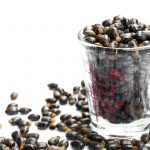Respiratory Parasite Named After Pokemon: ‘Pokemonas’
NODE SMITH, ND
‘Pokemonas’ live in round amoebae, similar to Pokémon, which are caught inside balls in the popular video game. A research team at the University of Cologne has discovered previously undescribed bacteria in amoebae that are related to Legionella and may even cause disease. The researchers from Professor Dr Michael Bonkowski’s working group at the Institute of Zoology have named one of the newly discovered bacteria ‘Pokemonas’ because they live in spherical amoebae, comparable to Pokémon in the game, which are caught in balls. The results of their research have been published in the journal Frontiers in Cellular and Infection Microbiology.
Bacteria of the order Legionellales have long been of scientific interest because some of these bacteria are known to cause lung disease in humans and animals — such as ‘Legionnaires’ disease’, which is caused by the species Legionella pneumophila and can sometimes be fatal. Legionellales bacteria live and multiply as intracellular parasites in the cells of organisms as hosts. In particular, the hosts of Legionellales are amoebae. The term ‘amoeba’ is used to describe a variety of microorganisms that are not closely related, but share a variable shape and crawling locomotion by means of pseudopods. ‘We wanted to screen amoebae for Legionellales and chose a group of amoebae for our research that had no close relationship to the hosts that were previously studied. The choice fell on the amoeba group Thecofilosea, which is often overlooked by researchers,’ explains Marcel Dominik Solbach.
And indeed, the spherical Thecofilosea serve as host organisms for Legionellales. In Thecofilosea amoebae from environmental samples, the scientists were able to detect various Legionellales species, including two previously undescribed genera and one undescribed species from the genus Legionella. ‘The results show that the range of known host organisms of these bacteria is considerably wider than previously thought. In addition, these findings suggest that many more amoebae may serve as hosts for Legionellales — and thus potentially as vectors of disease. To investigate this further, we are now sequencing the complete genome of these bacteria,’ said Dr Kenneth Dumack, who led the project.
In the future, these new findings should help to better understand how Legionellales bacteria are related amongst each other, and clarify their interactions with their hosts as well as the routes of infection in order to prevent outbreaks of the diseases in humans.
The researchers named one of the genera of bacteria they discovered ‘Pokemonas.’ The genus name ‘Pokemonas’ is a play on words based on the video game franchise ‘Pokémon,’ which celebrates its 25th anniversary this year and which most schoolchildren, students, and their parents should be familiar with. The name alludes to the intracellular lifestyle of the bacteria in the ball-shaped Thecofilosea amoebae, because in the ‘Pokémon’ series games, little monsters are caught in balls, much like ‘Pokemonas’ in the Thecofilosea.
1. Marcel Dominik Solbach, Michael Bonkowski, Kenneth Dumack. Novel Endosymbionts in Rhizarian Amoebae Imply Universal Infection of Unrelated Free-Living Amoebae by Legionellales. Frontiers in Cellular and Infection Microbiology, 2021; 11 DOI: 10.3389/fcimb.2021.642216

Node Smith, ND, is a naturopathic physician in Humboldt, Saskatchewan and associate editor and continuing education director for NDNR. His mission is serving relationships that support the process of transformation, and that ultimately lead to healthier people, businesses and communities. His primary therapeutic tools include counselling, homeopathy, diet and the use of cold water combined with exercise. Node considers health to be a reflection of the relationships a person or a business has with themselves, with God and with those around them. In order to cure disease and to heal, these relationships must be specifically considered. Node has worked intimately with many groups and organizations within the naturopathic profession, and helped found the non-profit, Association for Naturopathic Revitalization (ANR), which works to promote and facilitate experiential education in vitalism.










